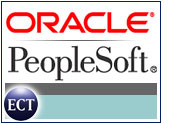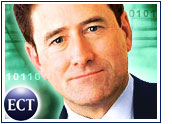
With a front-office firing, a rosy earnings report and a renewed court battle against Oracle, PeopleSoft continues to keep industry watchers busy.
After the announcement Friday that PeopleSoft CEO and President Craig Conway had been fired, many observers assumed that the move was related to Oracle’s hostile takeover bid. But now analysts suggest that Conway’s abrupt termination reflected a much broader dissatisfaction with the company’s direction.
Whatever the reason for the move, investors were satisfied: The company’s stock surged 15 percent Friday on news of Conway’s departure. Conway has been bitterly contesting Oracle’s takeover attempt. His departure makes a merger — which is generally seen as a positive prospect for PeopleSoft shareholders — more likely.
Another Court Date
This morning the company had more good news, posting a third-quarter profit and announcing that sales had beaten estimates. In the previous four quarters, PeopleSoft’s profits fell and the company lost customers.
And now Oracle is heading back to court in its long-running takeover bid. If the court rules in Oracle’s favor, PeopleSoft shareholders may have even more reason to smile.
Oracle will appear in court this week before Judge Leo Shrine, who is known for protecting the rights of outside shareholders. Oracle is asking Shrine to invalidate PeopleSoft’s poison pill, which would enable current shareholders to secure enough stock to block a hostile takeover.
It also requests elimination of a PeopleSoft customer assurance program that would pay PeopleSoft clients a total of $2 billion for disruption of services that might occur if the Oracle deal goes through.
Ruling Results
A favorable ruling for Oracle would make a merger more likely, and perhaps shift PeopleSoft’s stance. “This could get PeopleSoft to change its position,” Andrew Bartels of Forrester Research told CRM Buyer.
“Everyone expects that the new PeopleSoft management and board are intending to fight the acquisition,” he added, “but there may be conversations around better prices for shareholders, better service for customers and better assurances for PeopleSoft employees.”
Conway’s Departure
Bartels also spoke of the termination of Conway, suggesting that the decision likely arose from many corporate concerns. “PeopleSoft customers and shareholders certainly had an amount of dissatisfaction with Conway’s performance.”
Customers complained about the company’s pricing of software maintenance, and the board expressed disappointment with Conway’s stewardship of the corporate vision. Both groups groused about the handling of the JD Edwards acquisition. All of these concerns — independent of Oracle’s lengthy takeover bid — led the board to conclude that Conway needed to go, Bartels said.
“But his removal may make it easier for the PeopleSoft board to look differently at the Oracle acquisition,” Bartels said. And if Judge Shrine gives Oracle the decision it wants, PeopleSoft may have no choice but to consider getting friendly with Oracle.




















































